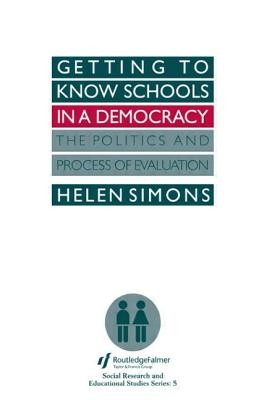
- We will send in 10–14 business days.
- Author: Helen Simons
- Publisher: Routledge
- ISBN-10: 1850001480
- ISBN-13: 9781850001485
- Format: 15.6 x 23.4 x 1.7 cm, minkšti viršeliai
- Language: English
- SAVE -10% with code: EXTRA
Reviews
Description
First published in 1987. The central concept of the book is that of 'democratic' evaluation, one of the most influential ideas in the development of education practice in this country since professional evaluation emerged in the 1960s. The question explored, through an examination of the theory and practice of democratic evaluation, is whether it is possible to both posit and practice an approach to evaluation that provides an effective curb on the derivatisation and centralisation of information for educational decision-making. The book documents the emergence of politically conscious evaluation in this country and through two detailed cases explores the strengths and weaknesses of democratic theory in practice. Issues concerning the rights, obligations and freedoms of evaluators in the conduct and dissemination of evaluations are discussed.
EXTRA 10 % discount with code: EXTRA
The promotion ends in 22d.13:20:01
The discount code is valid when purchasing from 10 €. Discounts do not stack.
- Author: Helen Simons
- Publisher: Routledge
- ISBN-10: 1850001480
- ISBN-13: 9781850001485
- Format: 15.6 x 23.4 x 1.7 cm, minkšti viršeliai
- Language: English English
First published in 1987. The central concept of the book is that of 'democratic' evaluation, one of the most influential ideas in the development of education practice in this country since professional evaluation emerged in the 1960s. The question explored, through an examination of the theory and practice of democratic evaluation, is whether it is possible to both posit and practice an approach to evaluation that provides an effective curb on the derivatisation and centralisation of information for educational decision-making. The book documents the emergence of politically conscious evaluation in this country and through two detailed cases explores the strengths and weaknesses of democratic theory in practice. Issues concerning the rights, obligations and freedoms of evaluators in the conduct and dissemination of evaluations are discussed.


Reviews